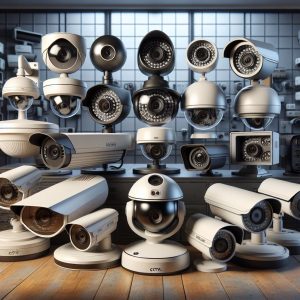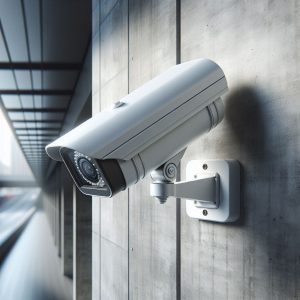Introduction
In the age of smart homes and advanced technology, smart locks have emerged as a popular choice for homeowners looking to enhance security and convenience. These electronic locks offer a range of features that traditional locks cannot match, but they also come with their own set of considerations. This article delves into the benefits and drawbacks of smart locks, their cost, installation, and whether they are worth the investment for your home.
What Are Smart Locks?
Smart locks are electronic locks that use various technologies such as Bluetooth, Wi-Fi, or Z-Wave to control access to a home. They can be operated remotely via a smartphone app, voice commands, or even biometric data like fingerprints. Unlike traditional locks, smart locks offer the ability to monitor and control access to your home from anywhere in the world.
Benefits of Smart Locks
- Convenience:
- Remote Access: One of the most significant advantages of smart locks is the ability to lock and unlock your door remotely. This is particularly useful if you need to let someone into your home while you are away.
- No More Keys: With smart locks, you no longer need to carry physical keys. This reduces the risk of losing keys and the hassle of getting them replaced.
- Integration with Smart Home Systems: Smart locks can be integrated with other smart home devices, such as security cameras, alarms, and lighting systems, to create a comprehensive home security network.
- Enhanced Security:
- Real-Time Alerts: Smart locks can send notifications to your smartphone whenever someone enters or exits your home. This allows you to monitor who is coming and going at all times.
- Temporary Access Codes: You can generate temporary access codes for guests, service providers, or Airbnb renters. These codes can be set to expire after a certain period, enhancing security.
- Tamper Alerts: Many smart locks come with tamper alerts that notify you if someone is trying to break into your home.
- Accessibility:
- Ease of Use: For individuals with mobility issues or disabilities, smart locks can provide easier access compared to traditional locks.
- Voice Control: Integration with voice assistants like Amazon Alexa or Google Assistant allows for hands-free operation.
Drawbacks of Smart Locks
- Cost:
- Initial Investment: Smart locks are generally more expensive than traditional locks, with prices ranging from $100 to $300 or more.
- Ongoing Costs: Some smart locks require subscription services for advanced features, adding to the overall cost.
- Installation and Maintenance:
- Installation Complexity: While some smart locks are designed for easy installation, others may require professional help, especially if they need to be integrated with existing security systems.
- Battery Life: Smart locks are battery-powered, and their batteries need to be replaced periodically. Failure to do so can result in the lock not functioning.
- Technical Issues:
- Connectivity Problems: Smart locks rely on internet or Bluetooth connections, which can sometimes be unreliable.
- Software Glitches: Like any electronic device, smart locks can experience software glitches that may prevent them from working correctly.
- Security Concerns:
- Hacking Risks: Although smart locks offer advanced security features, they are not immune to hacking. It is crucial to keep the software updated and use strong passwords to mitigate this risk.
- Dependence on Technology: In the event of a power outage or technical failure, you may be locked out of your home if you do not have a backup entry method.
Types of Smart Locks
- Keypad Locks: These locks use a numeric keypad for entry. They are simple to use and do not require a smartphone, making them a good option for those who prefer a straightforward approach.
- Bluetooth Locks: These locks connect to your smartphone via Bluetooth. They automatically unlock when you are within a certain range, offering hands-free convenience.
- Wi-Fi Locks: Wi-Fi-enabled locks offer the most features, including remote access and real-time alerts. However, they also consume more power and may require more frequent battery changes.
- Biometric Locks: These locks use fingerprint or facial recognition technology for entry. They offer high security and convenience but are typically more expensive.
Are Smart Locks Worth the Investment?
Whether a smart lock is worth the investment depends on your specific needs and circumstances. Here are some factors to consider:
- Security Needs: If you live in an area with high crime rates or frequently have guests or service providers entering your home, the enhanced security features of a smart lock can be invaluable.
- Convenience: For those who value the convenience of remote access and integration with other smart home devices, smart locks offer significant benefits.
- Budget: While smart locks are more expensive than traditional locks, the added security and convenience may justify the cost for many homeowners.
- Technical Comfort: If you are comfortable with technology and enjoy using smart home devices, a smart lock can be a great addition to your home security system.
Conclusion
Smart locks offer a range of benefits, including enhanced security, convenience, and accessibility. However, they also come with drawbacks such as higher costs, potential technical issues, and security concerns. Ultimately, whether a smart lock is worth the investment depends on your individual needs and preferences. By carefully considering the pros and cons, you can make an informed decision that best suits your home and lifestyle.





